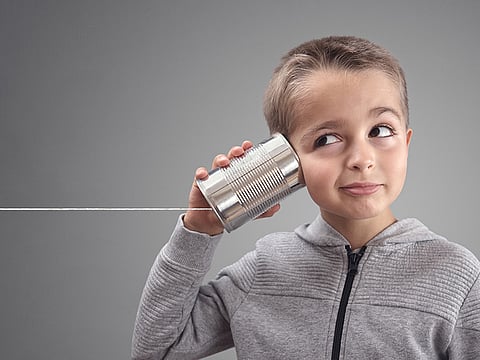Are you listening?
From sudden hearing loss to grommets required by infants, there are a number of different scenarios that could affect the quality of your hearing

A sudden loss of hearing is more common than you might think. In fact, last month Dr Jamal Kassouma, ENT Consultant at Dubai Hospital, saw seven such cases. When your hearing suddenly disappears in one ear, it is usually as a result of a viral infection or a vascular issue, where there is a blockage that disturbs your ability to hear.
Nevertheless, most issues can be rectified with steroid medication. An important point Dr Kassouma wants to reinforce is that those who experience sudden hearing loss should see an ENT specialist as soon as possible: “The reason I say this is because there is a golden time to use the steroid medication, which is the first 24 hours. This significantly improves the chances of your hearing fully returning.”
Noise-induced hearing loss
This form of hearing loss occurs after exposure to extremely loud noise over a prolonged period. Whether it’s listening to loud music or working in an environment where you’re constantly exposed to noise, warning signs such as tinnitus, where you experience a ringing sensation in the ears, should be taken as indications that you could be damaging your hearing.
“If noise levels in, for example, nightclubs or factories are above 90 decibels, it’s very dangerous to the hearing,” says Dr Kassouma. “In those situations, you should wear ear protection or reduce the hours you’re in those situations. If you are in a situation where the noise levels are above 90 decibels you shouldn’t be exposed for more than two hours, but it’s dependent on each individual case and their hearing sensitivity.”
Dr Kassouma himself has experienced tinnitus as a result of excessively loud environments, but he says that if you remove yourself from the situation soon enough, the damage will only be temporary. “If you don’t minimise exposure to loud music it can lead to permanent damage of the ear. I once went to a party where it was so loud, I had to leave after 15 minutes. Afterwards, I had tinnitus in my ears for three hours and I could not sleep.
“If tinnitus is prolonged it can cause permanent damage but usually a person’s hearing will return to normal. Usually, tinnitus is a warning sign that you shouldn’t expose yourself to such loud noises again and that you should use hearing plugs.”
Infant hearing impairment
During childhood, a hearing condition known as glue ear is relatively common. It occurs when there is a collection of fluids behind the eardrum in the middle ear. In fact, glue ear is the main reason for mild hearing loss in children. “If you speak loudly, the child can hear you but if you speak with a faint voice, they cannot,” says Dr Kassouma. “If they are very young, this can affect the quality of their speech because they don’t hear properly. [At] school, it can affect their academic performance.”
Due to the high number of cases, Dubai Health Authority (DHA) uses international standards to assess the necessity of treating each case. “We follow the UK NICE guidelines, which is the NHS’s National Institute for Health and Clinical Excellence,” says Dr Kassouma. “They say that you should wait for between three and six months for a child’s hearing to improve, but you proceed with the grommet in two situations. One is when the child’s hearing aid is affecting their speech and performance at school and the second situation is when the child is suffering from recurrent ear infections.
“Usually, I treat cases and then wait for three months. We give them antibiotics for two weeks, for example, and then we wait. If there is no improvement we will carry out a grommet insertion operation.
“We make a small incision in the eardrum and insert a tiny tube, which allows air to pass through the eardrum and it restores hearing straight away after the operation.”
Flying concerns
One common catalyst for hearing-related issues occurs when people fly while they are suffering from a cold or flu. The imbalance between the air pressure in the middle ear and the air pressure in the cabin around you, which changes rapidly during ascent and descent, is usually equalised by the air that flows through the Eustachian tubes, which connects the middle ear to the upper throat and back of the nasal cavity. If the Eustachian tubes are blocked, through congestion from a cold or flu, then it prevents you from equalising the pressure, which can lead pain and hearing issues.
“I would advise people who are flying that, if they have a cold, they should try to postpone it,” says Dr Kassouma. “If you can’t postpone the flight, they should use nasal decongestants, especially during descent, to prevent collapse of the Eustachian tube.”


